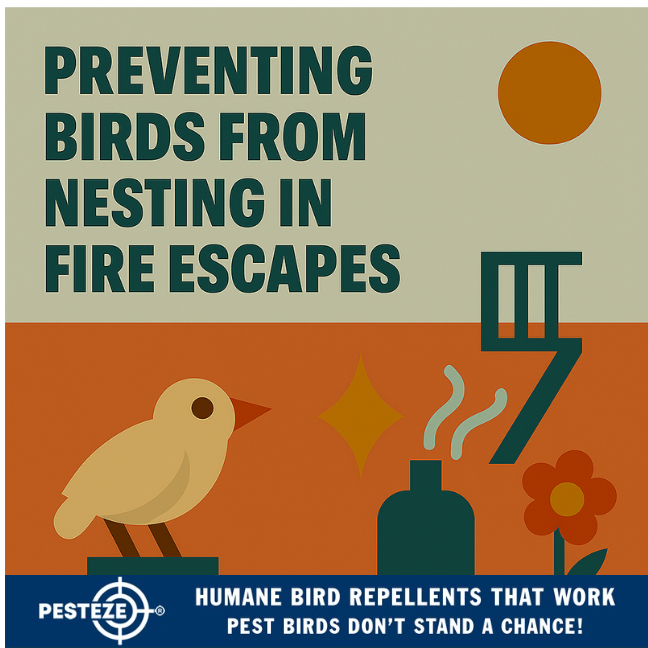PREVENTING BIRDS FROM NESTING IN FIRE ESCAPES

PREVENTING BIRDS FROM NESTING IN FIRE ESCAPES
SUMMARY
Bird nesting in fire escapes creates significant challenges for building safety, emergency infrastructure, and urban architectural management in 2025.
FEATURES
- Safety Preservation: Comprehensive strategies to maintain clear emergency evacuation routes.
- Structural Protection: Methods to prevent bird-related damage to critical building infrastructure.
- Emergency Preparedness: Techniques to ensure unobstructed fire escape functionality.
- Technological Innovation: Advanced solutions for managing bird populations in urban architectural spaces.
- Cost-Effective Maintenance: Strategies to minimize cleaning and repair expenses.
GUIDE DESCRIPTION
Fire escapes represent highly attractive nesting locations for birds, offering sheltered, protected spaces that mimic natural habitat characteristics. The combination of elevated positions, consistent temperatures, and minimal human disturbance creates ideal conditions for bird settlement in critical emergency infrastructure.
Birds are naturally drawn to fire escape environments due to multiple environmental advantages. Protected spaces, potential nesting opportunities, and limited human interaction make these architectural features highly appealing to various bird species. Understanding these attraction mechanisms becomes crucial for developing effective prevention strategies.
Technological innovations in 2025 provide sophisticated solutions for managing bird interactions with fire escapes. Advanced sensor systems, intelligent deterrent technologies, and targeted architectural modifications offer comprehensive protection strategies that balance emergency infrastructure functionality with wildlife management.
Professional building maintenance requires a holistic approach to fire escape protection that addresses multiple environmental factors. Understanding local bird species, their nesting behaviors, and specific architectural characteristics becomes essential for developing effective intervention strategies.
Strategic fire escape protection involves multiple comprehensive approaches. Physical barriers, intelligent design modifications, ongoing maintenance protocols, and targeted deterrence techniques create systems that effectively discourage bird nesting while maintaining critical emergency evacuation infrastructure.
- Pukhraj Sharma


Comments 0